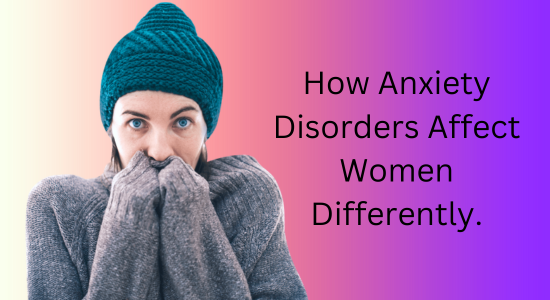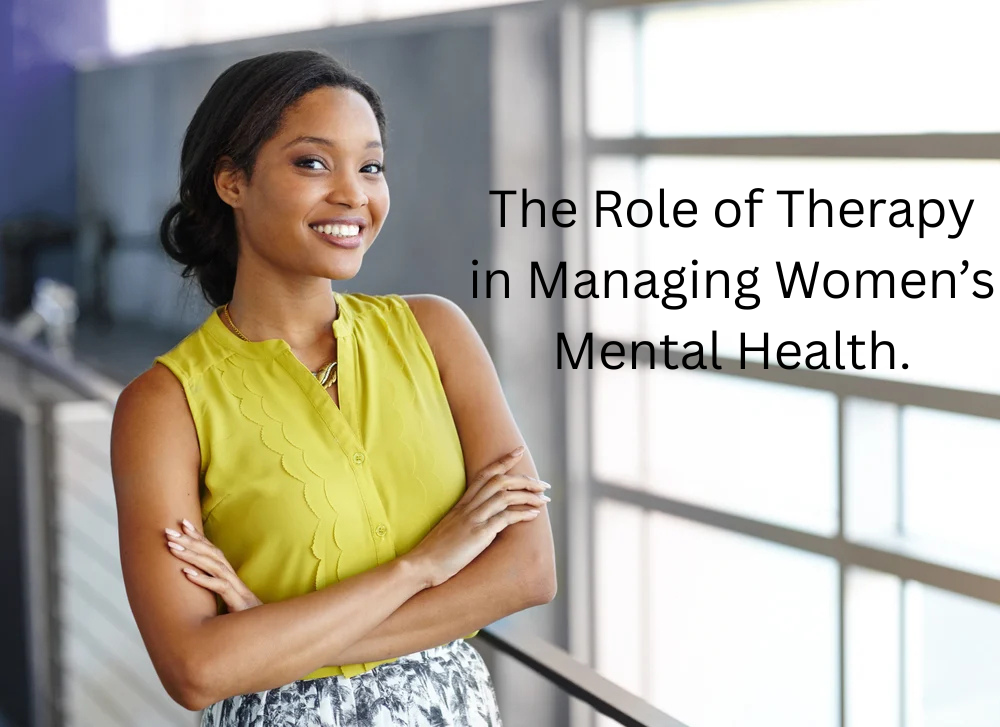The impact of social media on mental health is a widely discussed topic with both positive and negative effects. While social media fosters connection, support, and awareness, it also contributes to anxiety, depression, and self-esteem issues due to excessive usage and unrealistic portrayals of life.
Positive Effects of Social Media on Mental Health
- Emotional Support & Community – Online groups and forums provide support for mental health challenges.
- Awareness & Education – Spreads knowledge about mental health, therapy, and coping strategies.
- Self-Expression & Creativity – Platforms allow people to share their thoughts, talents, and emotions.
- Accessibility to Mental Health Resources – Therapy apps, online counseling, and mental health campaigns increase accessibility to professional help.
Negative Effects of Social Media on Mental Health
- Comparison & Low Self-Esteem – Seeing curated, “perfect” lives can cause body dissatisfaction and self-doubt.
- Cyberbullying & Online Harassment – Social media can be a toxic space, leading to stress, anxiety, and depression.
- Social Media Addiction – Excessive use can disrupt sleep, productivity, and real-life relationships.
- Fear of Missing Out (FOMO) – Constant exposure to others’ activities can lead to loneliness and stress.
- Mental Health Misinformation – Unverified advice online can sometimes be harmful.
Social media’s role in women’s mental health issues
1. Negative Impacts of Social Media on Women’s Mental Health
a. Body Image Issues
- Social media platforms like Instagram, TikTok, and Facebook often promote unrealistic beauty standards through filtered images, edited photos, and idealized lifestyles.
- Women may experience body dissatisfaction, low self-esteem, and eating disorders due to constant comparison with influencers or peers.
- The rise of “fitspiration” and “thinspiration” content can exacerbate these issues.
b. Social Comparison

- Social media encourages upward social comparison, where women compare their lives, achievements, and appearances to others who seem more successful or attractive.
- This can lead to feelings of inadequacy, anxiety, and depression.
c. Cyberbullying and Harassment

- Women are disproportionately targeted by online harassment, including body shaming, sexist comments, and hate speech.
- This can lead to emotional distress, low self-worth, and even PTSD in severe cases.
d. Fear of Missing Out (FOMO)

- Constant exposure to curated highlights of others’ lives can create FOMO, leading to feelings of loneliness, dissatisfaction, and anxiety.
- Women may feel pressured to keep up with trends, leading to stress and burnout.
e. Addiction and Sleep Disruption

- Excessive social media use can lead to addiction, reducing productivity and increasing stress.
- Late-night scrolling can disrupt sleep patterns, which negatively impacts mental health.
2. Positive Impacts of Social Media on Women’s Mental Health
a. Supportive Communities
- Social media provides a platform for women to connect with others who share similar experiences, such as motherhood, mental health struggles, or chronic illnesses.
- Online support groups and forums can offer emotional support, advice, and a sense of belonging.
b. Mental Health Awareness
- Social media has become a powerful tool for raising awareness about mental health issues, reducing stigma, and promoting resources.
- Campaigns like #SelfCareSunday and #MentalHealthMatters encourage women to prioritize their well-being.
c. Empowerment and Representation
- Women use social media to share their stories, advocate for causes, and challenge societal norms.
- Movements like #BodyPositivity and #MeToo have empowered women to speak out and demand change.
d. Access to Resources
- Social media provides access to mental health professionals, therapists, and wellness coaches who share tips, tools, and resources.
- Women can learn about mindfulness, therapy options, and self-care practices through platforms like Instagram and YouTube.
3. Key Factors Influencing Social Media’s Impact
- Age and Life Stage: Younger women and adolescents are more vulnerable to negative effects due to developmental stages and higher social comparison tendencies.
- Platform Type: Visual platforms like Instagram and TikTok may have a stronger impact on body image than text-based platforms like Twitter.
- Usage Patterns: Passive scrolling (e.g., consuming content without interaction) is more harmful than active engagement (e.g., commenting, sharing, or creating content).
- Cultural and Societal Norms: Societal pressures around beauty, success, and gender roles amplify the negative effects of social media.
4. Strategies to Mitigate Negative Effects
- Digital Detox: Taking regular breaks from social media to reduce stress and improve mental clarity.
- Curating Feeds: Unfollowing accounts that promote unrealistic standards and following body-positive or mental health-focused accounts.
- Mindful Usage: Setting time limits and being intentional about social media use.
- Seeking Support: Engaging in offline activities, therapy, or support groups to balance online interactions.
The link between social media and anxiety in women
1. How Social Media Contributes to Anxiety in Women
a. Social Comparison
- Women are often exposed to curated, idealized versions of others’ lives on social media, leading to upward social comparison.
- Comparing oneself to influencers, celebrities, or even peers can create feelings of inadequacy, low self-esteem, and anxiety about not measuring up.
b. Fear of Missing Out (FOMO)
- Social media constantly showcases others’ achievements, social events, and experiences, which can trigger FOMO.
- This fear of being left out or not living up to societal expectations can lead to chronic anxiety and stress.
c. Cyberbullying and Harassment
- Women are more likely to experience online harassment, including body shaming, sexist comments, and trolling.
- Such negative interactions can cause emotional distress, social anxiety, and a fear of engaging online.
d. Pressure to Present a Perfect Image
- The need to maintain a flawless online persona can create performance anxiety.
- Women may feel pressured to post only the best photos, achievements, or life updates, leading to stress and anxiety about how they are perceived.
e. Information Overload
- The constant stream of news, opinions, and updates on social media can be overwhelming.
- Exposure to negative news, conflicts, or divisive content can increase generalized anxiety and feelings of helplessness.
f. Sleep Disruption
- Excessive social media use, especially before bed, can interfere with sleep quality.
- Poor sleep is closely linked to increased anxiety levels and reduced emotional resilience.
2. Psychological Mechanisms Behind the Link
a. Dopamine and Validation
- Social media platforms are designed to trigger dopamine release through likes, comments, and shares.
- Women may become anxious when they don’t receive enough validation, leading to a cycle of seeking approval and feeling inadequate.
b. Perfectionism
- Social media often reinforces perfectionistic tendencies, as women feel pressured to meet unrealistic standards of beauty, success, and lifestyle.
- This can lead to chronic anxiety about falling short of these ideals.
c. Rumination
- Negative experiences on social media, such as receiving a hurtful comment or comparing oneself to others, can lead to rumination.
- Overthinking these experiences can exacerbate anxiety and make it difficult to disengage.
3. Vulnerable Groups
- Adolescents and Young Women: Younger women are particularly susceptible to social media-induced anxiety due to developmental stages and higher social comparison tendencies.
- Women with Pre-existing Mental Health Issues: Those already struggling with anxiety or depression may find their symptoms worsened by social media use.
- Mothers and Caregivers: Social media can create anxiety about parenting styles, child development, and balancing multiple roles.
4. Positive Aspects of Social Media for Anxiety
While social media can contribute to anxiety, it also has potential benefits:
- Supportive Communities: Women can find online groups that provide emotional support and reduce feelings of isolation.
- Mental Health Resources: Social media platforms offer access to therapists, mental health advocates, and self-help tools.
- Awareness and Advocacy: Campaigns like #MentalHealthMatters help normalize conversations about anxiety and reduce stigma.
5. Strategies to Reduce Social Media-Related Anxiety
a. Set Boundaries
- Limit daily social media use and avoid scrolling before bed.
- Use apps or phone settings to track and restrict screen time.
b. Curate Your Feed
- Unfollow accounts that trigger negative feelings or promote unrealistic standards.
- Follow accounts that promote body positivity, mental health awareness, and authenticity.
c. Practice Mindfulness

- Engage in mindfulness techniques, such as meditation or deep breathing, to manage anxiety.
- Be present and intentional when using social media, rather than mindlessly scrolling.
d. Seek Offline Connections
- Prioritize face-to-face interactions and hobbies that don’t involve screens.
- Build a strong support network outside of social media.
e. Professional Help
- If social media-related anxiety becomes overwhelming, consider seeking therapy or counseling.
- Cognitive Behavioral Therapy (CBT) can be particularly effective in addressing anxiety triggers.
Social media’s impact on women’s self-esteem
1. Negative Impacts of Social Media on Women’s Self-Esteem
a. Unrealistic Beauty Standards
- Social media is flooded with images of women who conform to narrow and often unattainable beauty ideals, such as flawless skin, thin bodies, and perfect hair.
- Filters, photo editing tools, and curated content create a distorted reality, leading women to compare themselves unfavorably and feel inadequate.
b. Social Comparison
- Women are more likely to engage in upward social comparison, where they compare themselves to others who appear more attractive, successful, or happy.
- This constant comparison can lead to feelings of low self-worth, jealousy, and dissatisfaction with one’s own life.
c. Validation Seeking
- The pursuit of likes, comments, and followers can become a measure of self-worth for many women.
- When posts don’t receive the expected engagement, it can lead to feelings of rejection and diminished self-esteem.
d. Cyberbullying and Criticism
- Women are more likely to face online harassment, including body shaming, slut-shaming, and negative comments about their appearance.
- Such experiences can severely damage self-esteem and lead to long-term emotional harm.
e. Pressure to Conform
- Social media often promotes trends and lifestyles that women feel pressured to adopt, whether it’s a certain fashion style, fitness routine, or life milestone.
- Failing to meet these expectations can lead to feelings of inadequacy and low self-confidence.
2. Psychological Mechanisms Behind the Impact
a. Dopamine and External Validation
- Social media platforms are designed to trigger dopamine release through likes, shares, and comments.
- Over time, women may become reliant on external validation for their self-worth, rather than developing intrinsic self-esteem.
b. Perfectionism
- The curated nature of social media encourages perfectionistic tendencies, as women strive to present an idealized version of themselves.
- This can lead to chronic dissatisfaction and self-criticism when they fall short of these unrealistic standards.
c. Objectification
- Social media often reduces women to their physical appearance, reinforcing the idea that their value lies in how they look rather than who they are.
- This self-objectification can erode self-esteem and lead to body image issues.
3. Vulnerable Groups
- Adolescents and Young Women: Younger women are particularly susceptible to social media’s impact on self-esteem due to developmental stages and higher social comparison tendencies.
- Women with Pre-existing Body Image Issues: Those already struggling with body image concerns may find their self-esteem further damaged by social media.
- Mothers and Caregivers: Social media can create unrealistic expectations about parenting, body image post-pregnancy, and balancing multiple roles, leading to feelings of inadequacy.
4. Positive Aspects of Social Media for Self-Esteem
While social media often harms self-esteem, it can also have positive effects when used mindfully:
- Body Positivity Movements: Campaigns like #BodyPositivity and SelfLove encourage women to embrace their bodies and reject unrealistic beauty standards.
- Supportive Communities: Women can find online groups that celebrate diversity, share uplifting messages, and provide emotional support.
- Empowerment and Representation: Social media allows women to share their stories, challenge stereotypes, and celebrate their achievements, fostering a sense of pride and self-worth.
5. Strategies to Protect and Boost Self-Esteem
a. Curate Your Feed
- Unfollow accounts that promote unrealistic standards or make you feel inadequate.
- Follow accounts that celebrate diversity, authenticity, and self-love.
b. Limit Social Media Use
- Set boundaries for how much time you spend on social media each day.
- Take regular breaks to focus on offline activities and relationships.
c. Practice Self-Compassion
- Remind yourself that social media is a highlight reel, not an accurate representation of reality.
- Treat yourself with kindness and avoid harsh self-criticism.
d. Focus on Strengths
- Shift your focus from appearance to your skills, talents, and achievements.
- Celebrate what makes you unique rather than comparing yourself to others.
e. Seek Support
- Talk to friends, family, or a therapist about how social media affects your self-esteem.
- Join online or offline communities that promote positivity and self-acceptance.
Strategies to improve mental health while using social media
1. Set Boundaries and Limit Usage
a. Time Management
- Use screen time tracking tools (e.g., iPhone’s Screen Time or Android’s Digital Wellbeing) to monitor and limit daily social media use.
- Set specific times for checking social media, such as 30 minutes in the morning and evening, to avoid constant scrolling.
b. Digital Detox
- Take regular breaks from social media, such as a day off each week or a weekend detox.
- Use this time to engage in offline activities like reading, exercising, or spending time with loved ones.
c. No-Scroll Zones
- Avoid using social media during meals, before bed, or in the bedroom to improve sleep quality and foster mindfulness.
2. Curate Your Social Media Feed
a. Unfollow Negative Influences
- Unfollow or mute accounts that promote unrealistic standards, trigger negative emotions, or spread toxic content.
- This includes accounts that make you feel inadequate, anxious, or unhappy.
b. Follow Positive and Uplifting Accounts
- Fill your feed with accounts that inspire, educate, or uplift you, such as mental health advocates, body positivity influencers, or motivational speakers.
- Examples: @themindfulnessmovement, @nedratawwab, @bodyposipanda.
c. Diversify Your Feed
- Follow accounts that represent diverse body types, cultures, and lifestyles to broaden your perspective and reduce comparison.
3. Practice Mindful Social Media Use
a. Be Intentional
- Before opening a social media app, ask yourself why you’re using it. Are you looking for connection, inspiration, or entertainment? Avoid mindless scrolling.
b. Engage Actively
- Instead of passively consuming content, engage in meaningful interactions, such as commenting on posts, sharing your thoughts, or joining supportive communities.
c. Avoid Comparison
- Remind yourself that social media is a highlight reel, not an accurate representation of reality. Focus on your own journey and achievements.
4. Prioritize Real-Life Connections
a. Balance Online and Offline Interactions
- Spend quality time with friends and family offline to build deeper, more meaningful relationships.
- Use social media to enhance, not replace, real-life connections.
b. Join Offline Activities
- Participate in hobbies, clubs, or events that don’t involve screens, such as sports, art classes, or volunteering.
5. Focus on Self-Care and Mental Health Practices
a. Practice Gratitude
- Keep a gratitude journal to focus on the positive aspects of your life rather than comparing yourself to others online.
b. Mindfulness and Meditation
- Use mindfulness apps like Headspace or Calm to reduce stress and stay present.
- Practice deep breathing or meditation before or after using social media to center yourself.
c. Exercise Regularly
- Physical activity boosts mood and reduces anxiety, counteracting the negative effects of social media.
6. Seek Support When Needed
a. Talk to Someone
- If social media is affecting your mental health, talk to a trusted friend, family member, or therapist about your feelings.
b. Join Supportive Online Communities
- Participate in groups or forums that focus on mental health, self-care, or shared interests to find encouragement and understanding.
c. Use Mental Health Resources
- Follow mental health professionals or organizations that provide tips, tools, and resources for managing stress and anxiety.
7. Educate Yourself About Social Media’s Impact
a. Understand Algorithms
- Learn how social media algorithms work to recognize how they manipulate your emotions and keep you engaged.
- This awareness can help you take control of your usage.
b. Stay Informed About Mental Health
- Read articles, books, or studies about the impact of social media on mental health to make informed decisions about your usage.
8. Create a Positive Online Environment
a. Share Authentically
- Post content that reflects your true self rather than striving for perfection. Authenticity can foster genuine connections and reduce pressure.
b. Spread Positivity
- Use your platform to share uplifting messages, support others, and promote mental health awareness.
c. Avoid Over-Sharing
- Be mindful of what you share online to protect your privacy and mental well-being.
9. Use Technology to Your Advantage
a. Mental Health Apps
- Use apps designed to improve mental health, such as mood trackers, journaling apps, or meditation guides.
b. Notification Management
- Turn off non-essential notifications to reduce distractions and interruptions.
c. Block Harmful Content
- Use tools to block or report harmful content, such as cyberbullying or hate speech.
10. Reflect and Adjust
a. Regularly Assess Your Usage
- Periodically evaluate how social media affects your mood and mental health. Adjust your habits accordingly.
b. Set Personal Goals
- Define what you want to achieve from social media, such as staying connected with friends or learning new skills, and align your usage with these goals.
Also read about: The Best Workouts for Women Over 50.
conclusion
Social media has a profound impact on women’s mental health, with both positive and negative effects. While it can foster connection, empowerment, and access to resources, it often contributes to anxiety, low self-esteem, and body image issues due to unrealistic standards, social comparison, and cyberbullying. By using social media mindfully, setting boundaries, and prioritizing self-care, women can mitigate its negative effects and harness its potential for positive mental health outcomes. Balancing online engagement with real-life connections and self-compassion is key to maintaining well-being in the digital age.
RESOURCES.
[Link to a related article “Social media’s role in women’s mental health issues“]


Pingback: Why Women Are More Prone to Chronic Pain Conditions.
Pingback: 8 Top Stress Management Tips for Busy Women